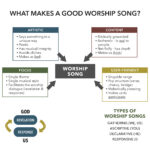Cake’s iconic song “Short Skirt/Long Jacket” is more than just a catchy tune; it’s a clever commentary on the conflicting expectations placed upon women in contemporary society. While seemingly praising a strong, independent woman, the song subtly reveals a yearning for traditional femininity, highlighting the double standards that persist even in a post-feminist era. This analysis delves into the lyrics and structure of this popular “Long Jacket Song” to uncover its nuanced message about societal pressures and gender roles.
Initially, the song appears to celebrate the modern, empowered woman. The lyrics paint a picture of a woman who is intellectually sharp (“a mind like a diamond”) and professionally competent. She navigates corporate environments with ease, “cutting through red tape” and “picking up slack.” Her success is evident in lines describing “uninterrupted prosperity” and “good dividends,” showcasing her financial independence. The singer even adds a layer of allure, noting how she “puts up her hair” and “plays with her jewelry,” suggesting a confident sexuality. The line “fingernails that shine like justice” elevates her attractiveness to an almost idealized level, comparing her beauty to an abstract virtue.
This initial portrayal leads many listeners to believe that “Short Skirt/Long Jacket” is simply an anthem for the modern, empowered woman. She is depicted as someone who is active and socially engaged (“wakes up early, stays up late”) and possesses both professional success and physical appeal. In the hands of a less ironic band, this interpretation might hold true. However, Cake’s history of satirical and sardonic songwriting hints at a deeper, more critical message embedded within this seemingly celebratory song.
The shift in the song’s narrative is subtly signaled by an instrumental bridge after the second chorus. This musical interlude serves as an auditory cue, preparing the listener for a change in perspective. The subsequent verse introduces a stark contrast to the previously described independent woman. The singer’s fantasy of meeting this woman at Citibank – a symbol of financial power – quickly takes a turn towards traditional gender dynamics. The encounter begins with her needing to borrow his pen, immediately positioning her in a dependent role. This seemingly minor detail establishes a power imbalance, with the woman requiring assistance from the male singer for a simple task. From this point on, the song subtly transitions to describing a different kind of woman altogether.
Further emphasizing this shift, the lyrics describe her trading in her MG, a British sports car known for its sporty and somewhat luxurious appeal, for a white Chrysler LeBaron. The Chrysler LeBaron, especially by the 1990s when “Short Skirt/Long Jacket” was released, was associated with middle-class American comfort and practicality rather than high-end luxury. The mention of a “cup holder armrest” further reinforces this image of suburban domesticity and practicality. This car is not about status or excitement; it’s about errands and functionality, a stark contrast to the MG and the image of the independent woman previously portrayed.
This automotive shift is symbolic of a larger domestication of the woman in the song’s narrative. Her name changes from the more distinctive “Kitty” to the common and conventional “Karen.” She moves from driving a sporty MG to a practical sedan. This transformation paints a picture of a woman who is no longer the independent, career-driven individual of the earlier verses, but rather someone resembling a stereotypical suburban housewife of the 1950s – a far cry from the Wall Street professional initially depicted.
The recurring phrase “short skirt/long jacket” itself becomes the central metaphor for this societal double standard. Repeated three times and concluding the song, this fashion combination encapsulates the tension between the acceptance of modern female empowerment and a lingering desire for traditional femininity. In a post-feminist society, men who express a preference for domesticated women risk being labeled as regressive, while those who champion the independent woman are seen as progressive. Similarly, women face societal pressures, being both praised for professional ambition and sometimes subtly judged for not fulfilling traditional domestic roles.
The “short skirt” symbolizes female emancipation – historically, rising hemlines have been associated with women’s liberation – representing sexual freedom, career choices, and financial independence. However, the “long jacket,” designed to cover the short skirt, acts as a metaphor for societal constraints and traditional expectations. While society may outwardly accept the “short skirt” of female empowerment, there’s an underlying expectation that it be tempered or “covered” by the “long jacket” of traditional roles. The woman can be successful and independent, but upon entering a relationship (symbolized by meeting the singer), she is expected to adopt a more subservient and domesticated role, effectively concealing her independence with the long jacket of traditional femininity.
In conclusion, “Short Skirt/Long Jacket” by Cake offers a shrewd commentary on the complexities of the post-feminist world. Beneath its upbeat tempo and seemingly celebratory lyrics lies a critical examination of the double standards women face. The song uses the contrasting imagery of the short skirt and long jacket to represent the ongoing tension between embracing female empowerment and clinging to nostalgic ideals of traditional womanhood. It’s a song that resonates because it captures the often unspoken and contradictory expectations that shape modern perceptions of women in society.
References
- Cake. “Short Skirt/Long Jacket.” Comfort Eagle, Columbia Records, 2001.

